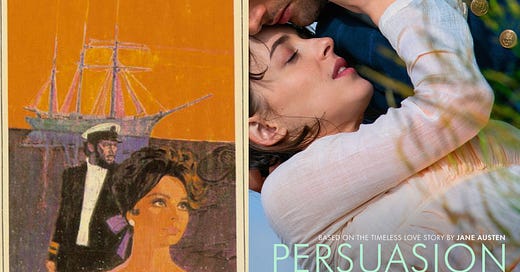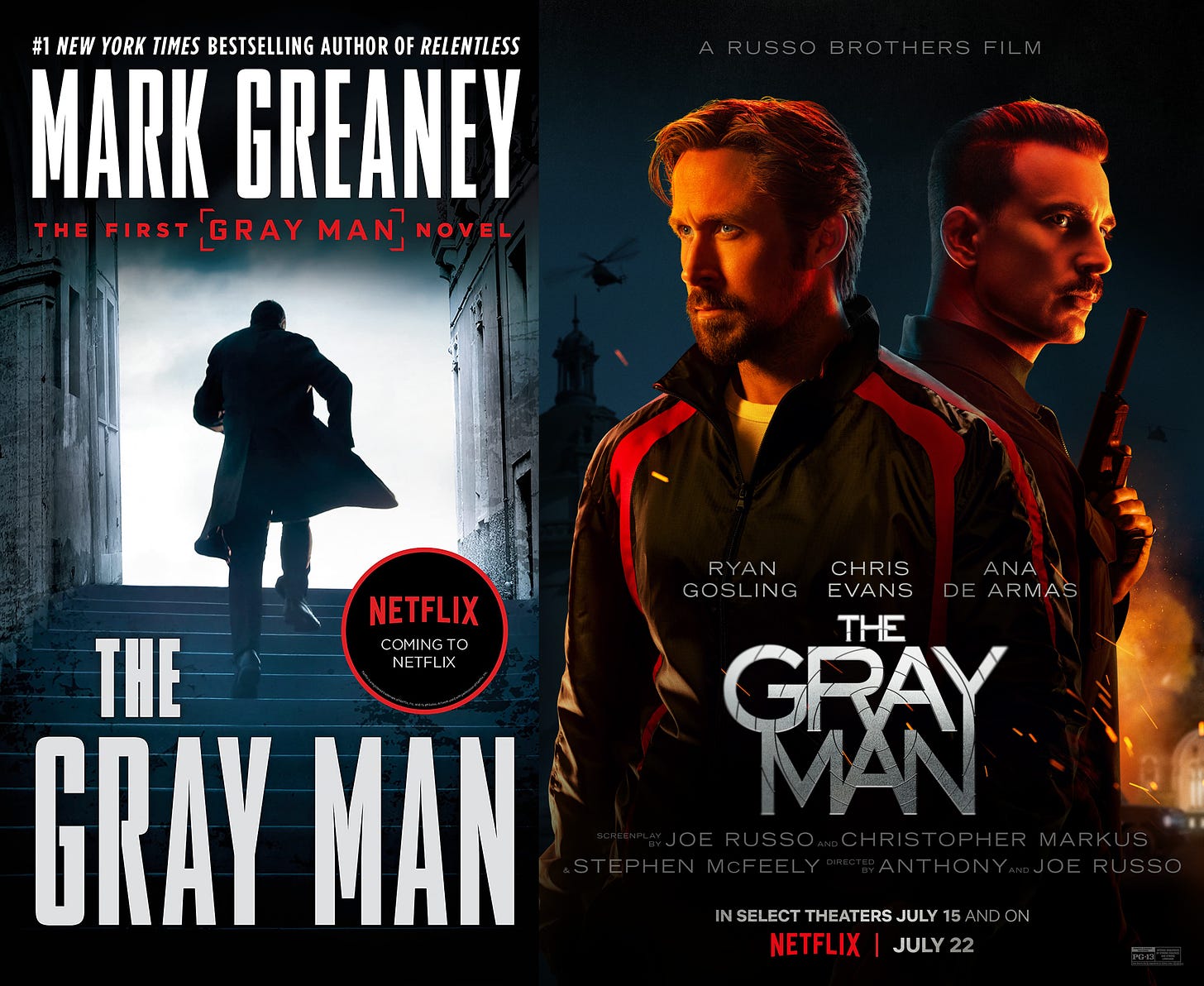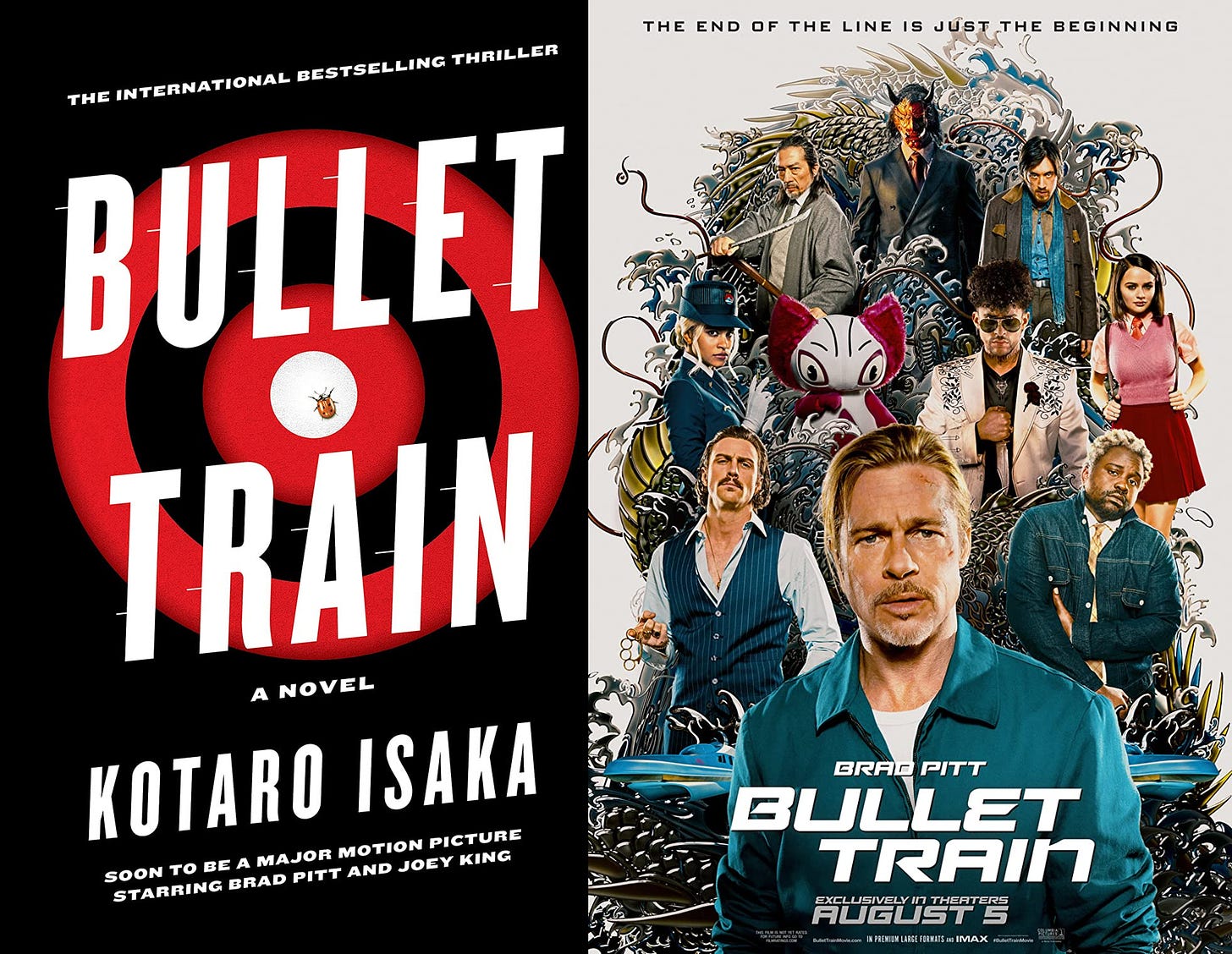Hello everyone, I’m glad you’re here. Welcome new readers who have joined in the last couple of weeks! I’m pretty sure you found me thanks to the generous recommendation of my friend, reader/writer extraordinaire Jeremy Anderberg, who described my newsletter succinctly:
My buddy's short takes on books and their movie adaptations.
I’m grateful for that recommendation and look forward to collaborating with Jeremy in the future. More on that later.
Why do I love adaptations so much?
Making a book into a movie or show has captured my interest in a surprising way. I used to co-host a podcast called Literate Cinephiles and every episode was about a book and its adaptation. We debated the merits of each and tried to answer the question “If you could only do one, what should it be?”
One of my favorite episodes was an interview with Jesse Andrews, who wrote the book Me, Earl, and the Dying Girl and then wrote the screenplay for the movie. By the way, writing the screenplay for your own book is rare but has happened before. A few examples:
Mario Puzo wrote The Godfather (and won an Oscar for it)
Gillian Flynn wrote Gone Girl (movie) and Sharp Objects (TV)
John Irving wrote Cider House Rules (and won an Oscar)
Stephen King has several screenplay credits because of course he does.
Stephen Chbosky wrote The Perks of Being a Wallflower and even directed it. I guess he wins.
In the interview with Jesse, we asked what he thought of the idea of “faithful” adaptations:
Books and movies are such different objects that each one demands to be its own thing. I feel really opposed to the idea that a movie adaptation should ever be some verbatim rendering of the book. When people complain that a movie wasn’t like the book, I think: Yeah, of course it wasn’t, it’s a movie! There’s no such thing as a movie that was “like the book.” A book is you muttering in your own head and all the fireworks and sounds and displays that accompany that because of our brains and it happens at your own pace. A movie is 90 minutes of film that you watch in a room that happens at the pace it is made.
Books aren’t movies and movies aren’t books. They are completely different mediums even though both are storytelling mediums. A filmmaker doesn’t owe any measure of faithfulness to the author or the author’s fans, but to his or her own artistic voice.
Which brings us to Persuasion.
“Jane Austen will be just fine.”
That quote comes from Carrie Cracknell, the director of the new Netflix movie based on the Jane Austen novel. She said it after the reaction to the trailer, which Austen fans got really worked up over. The movie is out now and stirring up even more drama for not being true to the book. I plan to do a deeper dive next week once I finish reading and watching, but this will be a juicy one.
Future entries in the Source Material series
In addition to my other bite-size reviews, I’ll write about upcoming adaptations right here on Substack under the subtitle Source Material. Besides Persuasion, here are some others I’m looking forward to:
The Gray Man - Court Gentry is a trained killer, the best in the business, operating in the gray. Now his handlers want him dead and have sent teams of mercenaries after him. This was an exciting, creative thriller that never let off the gas. The movie is in limited theatrical release and just dropped on Netflix today.
Bullet Train - 5 assassins on a train are all after the same thing: An ordinary brief case. But who are they working for and who will make it off the train alive? The book was bonkers and I can’t wait to see what the filmmakers do with it. It arrives in theaters in two weeks.
Where the Crawdads Sing - Kya is abandoned by her family and raises herself in the wilds of the North Carolina coast. With no layers between her and nature, she learns to survive. I listened to the audiobook earlier in the summer and I totally get all the hype. Kya is a fantastic character you can root for. The movie came out last week and I’m not sure if I’ll get to it before it leaves theaters but I will watch it eventually.
The Big Read with Jeremy Anderberg
My good buddy Jeremy writes a Substack called The Big Read, an online book club where he breaks the book into manageable daily reading chunks and provides super insightful commentary, background, and context. Here are the books he has covered or will be covering which have movie or TV series adaptations:
War and Peace - I read this last year and can’t wait to watch the latest BBC series starring Lily James and Paul Dano.
Frankenstein - This has a few adaptations/derivations which will be enjoyable.
A Tree Grows in Brooklyn - I know nothing about this so I’m curious to find out what it’s about.
Lonesome Dove - Love this book so much! The mini-series looks fantastic.
Guns of August - Don’t know much except WWI history.
The Count of Monte Cristo - Great movie, great book, should be fun.
I look forward to another year of The Big Read and providing some fun commentary of my own from the adaptation angle.
So…why do I love adaptations so much?
Blake Crouch, whose new novel Upgrade is available now, is currently working with Apple on adapting his 2016 book Dark Matter. He said this in a recent interview :
I’m envious of musicians because they create something and get to perform it over and over again. They get to continue to explore it and see different aspects of it. And sometimes with a book, you finish and that’s it! I could tell you some things about Wayward Pines (a trilogy he concluded in 2014) but large chunks of it are just gone. Getting to make this show is like getting to play the song of Dark Matter again. I’m getting to explore these characters again and go in directions I didn’t go in the book and I find that really satisfying and exciting and I imagine it’s how musicians feel playing a song again and again.
The book is written one time, but it can be adapted, rewritten, and reimagined many times for many generations. Adaptations give the story longevity and relevance and a new life. Most importantly, they do the indispensable work of pointing people back to the source: The book itself. What’s not to love about that?
There’s so much to love out there and I wish you all the best in your search for great art.
Kyle








"A filmmaker doesn’t owe any measure of faithfulness to the author or the author’s fans, but to his or her own artistic voice."
This is a very interesting take. I'm curious, how do you feel about the "In Name Only" criticism? Basically, it's when an adaptation is so different from the source material that people say the only commonality between the two works is that they share the same name. For example, there is an anime called Romeo X Juliet that is VERY different from the Shakespeare play Romeo and Juliet.